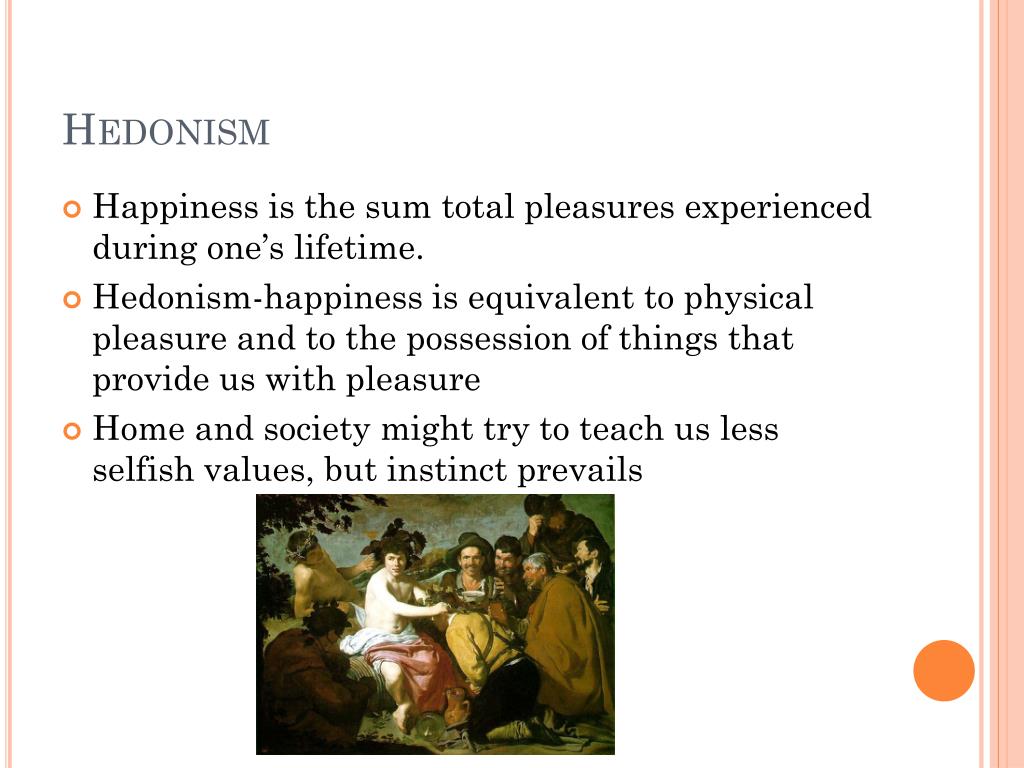

Cinematic experiences can be especially enjoyable when shared with friends or family, as it adds a level of connection through shared emotions and reactions in response to the movie itself. Watching movies: Watching movies is another form of hedonism, as it brings enjoyment through engaging stories and captivating visuals.Listening to the music you enjoy is a form of hedonism, as it produces feelings of pleasure when you consider the melodies, rhythm, and lyrics. Listening to music: Music has always been highly valued for its ability to bring emotions and joy to its listeners.The act of eating, combined with the flavors and textures of the food, can bring feelings of satisfaction and pleasure. Eating delicious food: Eating food that brings pleasure, such as a gourmet meal or a favorite snack of comfort food, is an example of hedonism.Simply, hedonism is the belief that seeking pleasure and avoiding pain should be the primary goals of life. In hedonistic thought, pleasure is not necessarily equated with material goods it can include mental or emotional joys and physical pleasures.įrom a scientific standpoint, it is postulated that hedonic activities, such as eating a delicious meal or engaging in recreational activities, increase dopamine levels in the brain, producing feelings of pleasure and satisfaction.

“…seeking pleasure and avoiding pain, as the end we should seek, is the moral view of the hedonists” (p. The concept, which has its roots in ancient Greek philosophy, is based on hedonic calculus-a method of weighing pleasure and pain to determine whether an action or decision is right or wrong (Tubbs, 2009). “…hedonism is defined as the doctrine that pleasure or happiness is the sole or chief good in life, or a way of life-based on this doctrine” (p.

It is based on the belief that pleasure and happiness are the only intrinsic goods, meaning they are valuable regardless of any other factors. Hedonism is the philosophical belief that pleasure and happiness are the highest forms of good and should be the primary goals of life.


 0 kommentar(er)
0 kommentar(er)
